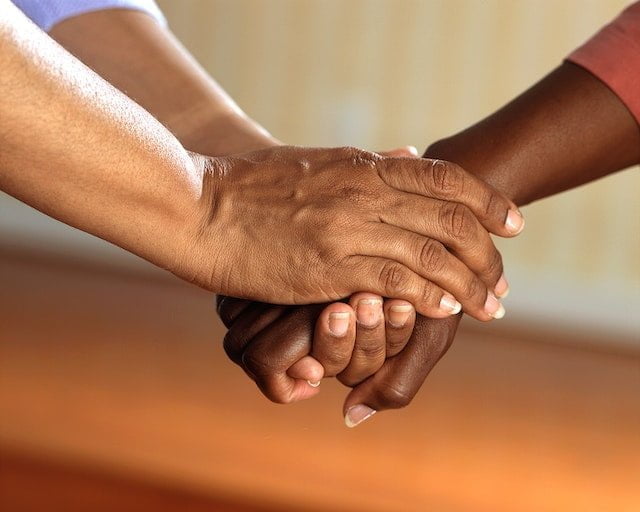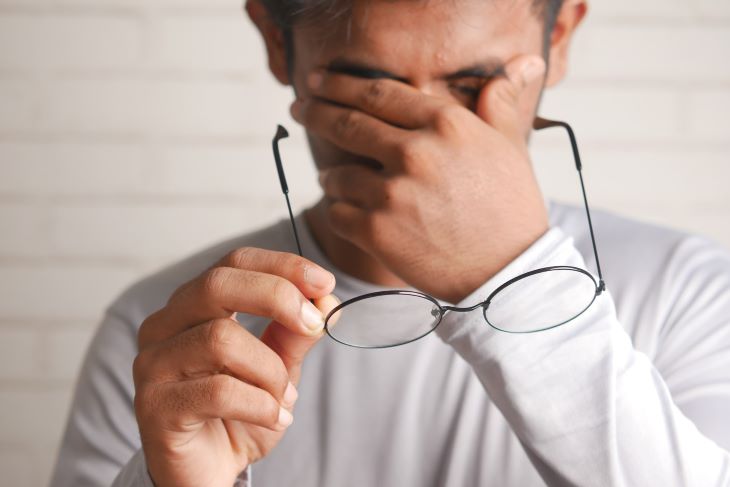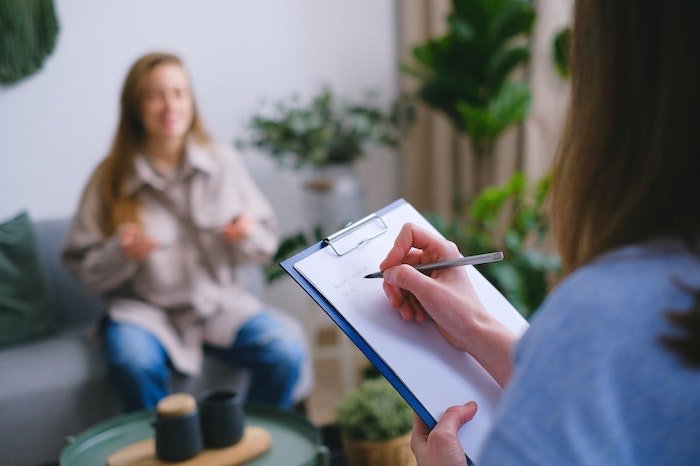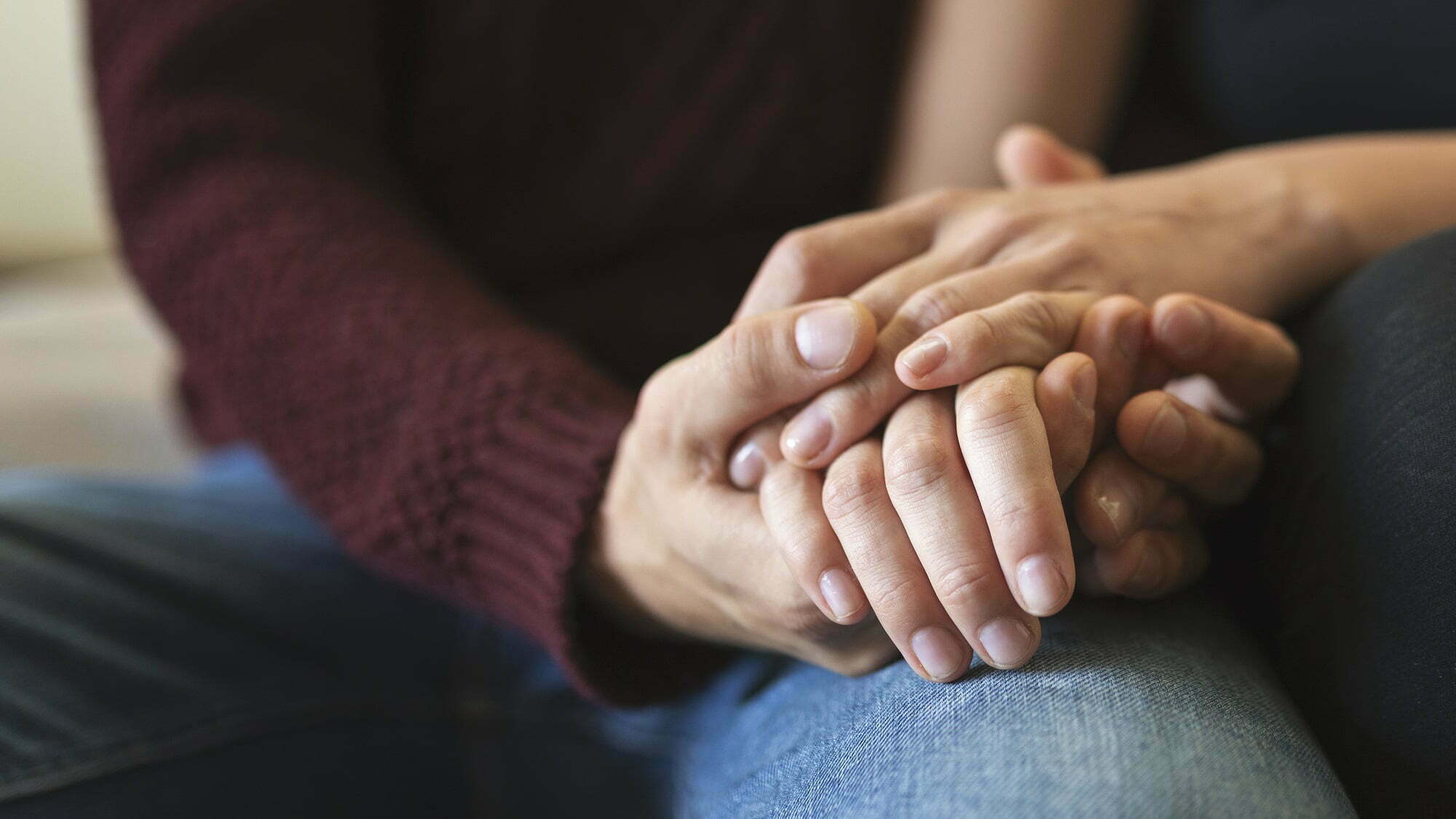Sex and Love Addiction
Quick Links for Sex and Love Addiction
- What is sex addiction?
- What are the signs and symptoms of sex addiction?
- What is love addiction?
- What are the signs and symptoms of love addiction?
- What causes a sex and love addiction?
- How does sex and love addiction affect partners and spouses?
- Can I be treated for porn addiction if I have a mental health problem?
- Final thoughts on porn addiction
- References for sex and love addiction
When many people think of addiction, they usually reference substance addictions such as alcohol and drugs, or commonly discussed behavioural addictions like gambling or overeating.
While often forgotten, sex and love addiction is a very real disorder that can have devastating consequences for the individual and their loved ones.
When the signs of sex and love addiction are spotted, it is essential to get appropriate help before more damage is done to the addiction sufferer and those they care about.
What is sex addiction?

Couple holding hands talking about sex and love addiction
An individual with sex addiction is compulsively driven to seek out sexual gratification despite experiencing negative consequences due to their behaviour.
They may have sex with multiple partners, masturbate excessively or spend hours watching pornography every day.
Sex addicts are not necessarily engaging in illegal sexual activity but may be putting themselves and their partners at risk if they are engaging in multiple sexual relationships. [1]
Common forms of sex addiction include:
- Pornography
- Escorts and prostitution
- Sexual acts
- Masturbation
- Exhibitionism
- Voyeurism
Sex addiction can be just as physically, psychologically and emotionally damaging as substance addiction, and many sex addicts report experiencing overwhelming feelings of shame and guilt.
What are the signs and symptoms of sex addiction?

Man suffering from the signs of sex and love addiction
While substance abuse may manifest in physical symptoms that may be visible to others, a person dealing with sex addiction will often have no distinguishing features that signal their addiction.
However, they will likely display a number of behavioural and emotional symptoms that may be detected by those closest to them.
Common symptoms [2] of sex addiction include:
- Being unfaithful to partners
- Feelings of shame and guilt around sexual behaviour
- Engaging in risky behaviour such as unprotected sex
- Frequently and persistently thinking about sex
- Spending large amounts of time on sex
- Compulsively seeking out sexual partners
- Being dishonest about sexual behaviours
- Experiencing negative consequences as a result of the behaviour but continuing to do it
- Attempting to reduce or stop the behaviour but being unable to do so
What is love addiction?

Couple discussing sex and love addiction
A person suffering from love addiction is infatuated with the feelings and emotions that are experienced when entering a new romantic relationship.
In short, they are in love with the feeling of falling in love. [3]
This can cause them to compulsively and obsessively seek out new relationships, growing tired of their partner once the initial rush and excitement of the relationship begin to fade.
It is theorised that love addicts are not actually seeking love – rather, they are attempting to escape their own feelings of inadequacy and unworthiness as well as a fear of being alone. [4]
What are the signs and symptoms of love addiction

Therapist speaking with a patient and taking notes about sex and love addiction
Similarly to a person dealing with sex addiction, there are generally no visible symptoms of a love addiction besides the fact that the individual is frequently entering into new relationships.
It is their behaviours, particularly around relationships, that can signal a potential problem.
Common symptoms [5] of love addiction include:
- Difficulty remaining interested in a relationship after the ‘honeymoon phase’
- Feeling unhappy and unfulfilled when not in a relationship
- Constantly searching for a new long-term relationship
- Unable to bear the thought of being alone
- Prioritising their partner’s needs over their own
- Changing themselves to suit their partner’s preferences
- Selecting inappropriate partners who cannot provide long-term intimacy
- Compulsively returning to previous relationships, even if they were unhealthy
- Prioritising finding or maintaining a relationship above all else
What causes a sex and love addiction?

Two friends discussing sex and love addiction
Anyone can develop a sex and love addiction regardless of age, gender or ethnicity.
However, there are certain factors that can increase the likelihood of experiencing this disorder.
Some people are more prone to compulsive sexual behaviour and destructive relationships, and this is usually based on events and experiences that occurred in childhood or during a previous relationship.
Common causes of a sex and love addiction include:
1. Past experiences
Suffering abuse and trauma at an early age can lead to feelings of low self-esteem and a lowered sense of self-worth.
People with these experiences may enter into unhealthy relationships as they believe they do not deserve any better, normalising detrimental behaviours and excusing physical and emotional abuse.
2. Learned behaviours
A child with a sex or love-addicted parent may grow up believing that this behaviour is normal, and this could lead them to repeat it within their own relationships.
It can be difficult to unlearn these behaviours, but not impossible.
3. Abusive relationships
A past abusive or otherwise unhealthy relationship may leave an individual feeling unworthy of love, and as a result, they will seek out multiple partners and relationships out of fear of being alone with themselves.
They can often let one negative relationship influence any future experiences with other people.
How does sex and love addiction affect partners and spouses?

Couple in therapy for sex and love addiction
Finding out that your partner has a sex or love addiction can be shocking and overwhelming.
It can bring about feelings of shame, humiliation, betrayal, anger and sadness, and you may even blame yourself for the infidelity.
In fact, studies have shown [6] that partners of a sex-addicted spouse often display many symptoms of trauma and PTSD.
It’s important to remember that your reaction is completely normal, no matter how you may be feeling.
There are a number of ways that a partner or spouse may react to a partner with a sex or love addiction, including:
- Attempting to alter their physical appearance by losing weight or wearing revealing clothing
- Feeling depressed, anxious and stressed
- Finding it difficult to talk about the behaviour
- Compulsively checking their partner’s messages, emails and call logs
- Loss of confidence and self-esteem
- Blaming themselves for the behaviour
- Feelings of shame and humiliation
- Frequent mood swings
- Difficulty falling or staying asleep, suffering from nightmares
- Attempting to punish their partner by spending money excessively, revealing their behaviour to others or being unfaithful as a form of b
- Feeling distracted and unable to focus on the present moment

Two people holding hands and talking about sex and love addiction
There are a number of steps that you can take in order to support your partner through their recovery while taking care of your own physical and mental health during this difficult and emotional time.
1. Educate yourself about addiction
It can be easy to place the blame for your partner’s actions on yourself and your perceived inadequacies, believing that they would never have strayed if only you were more attractive, more intelligent or a size smaller.
Taking the time to learn about the causes of sex and love addiction can bring about a feeling of peace.
You will begin to understand that there was nothing you could have done to prevent this from happening, and over time you will eventually release yourself from blame and begin to regain your confidence.
2. Find support for yourself
During this time it’s important to seek out support for yourself in order to work through your emotions and learn healthy coping strategies.
This can be in the form of counselling, in which a therapist will guide you through your feelings and allow you to unload your thoughts and emotions within a safe, supportive environment. Techniques such as Cognitive Behavioural Therapy and Dialectical Behaviour Therapy are likely to be used.
There are also a number of support groups [7] for the partners of sex and love addicts who meet regularly and discuss their feelings.
It can be a great source of comfort to discover that other people share your experiences and can help you to feel less alone.
3. Set healthy boundaries
If you choose to continue the relationship, healthy boundaries must be set in place. These may include mandatory couple’s counselling, access to your partner’s passwords or ensuring that they arrive home by a promised time.
Your partner should not feel controlled, and you should not feel as though you are nagging them.
Instead, both parties should be committed to taking the appropriate action required to rebuild the relationship and increase the levels of trust.

Two people walking through a field and discussing sex and love addiction
4. Support your spouse
People dealing with a sex addiction often feel immensely guilty and ashamed, filled with regret and the knowledge that they have hurt and betrayed the person they love most.
These feelings can often hold them back from making a full recovery, as they are trapped in a cycle of self-loathing and detrimental behaviours.
Extending your support, while being careful not to enable their addiction, can make all the difference to their recovery.
Only by working as a team will you be able to rebuild your relationship and find happiness together again, despite any past hurts and mistakes.
5. Recovering from a sex and love addiction
It is possible to recover from a sex and love addiction and move forward with healthy relationships and boundaries in the future.
Sex and love addiction can be treated as an inpatient or an outpatient, but the most effective form of treatment involves entering a specialised rehabilitation centre for dedicated one-on-one therapy and a personalised treatment plan.
During therapy sessions, a trained counsellor will examine the causes of the addiction and challenge unhealthy and detrimental mindsets and behaviours.
They will focus on raising the individual’s self-esteem and sense of worth by encouraging positive self-talk and drawing upon past experiences that challenge negative beliefs.
Once your comprehensive addiction treatment programme has ended, the individual will be encouraged to attend local support groups such as Sex Addicts Anonymous to continue these healthy behaviours and mindset changes and meet other people with shared experiences. This can help to prevent relapse and increase the chances of long-term recovery from a sex and love addiction.
For help overcoming the effects of sex and love addiction, talk to our expert team for free on 0800 326 5559
References for Sex and Love Addiction
[1] https://www.ncbi.nlm.nih.gov/pmc/articles/PMC2945841/
[2] https://www.webmd.com/mental-health/addiction/signs-sex-addict
[3] https://www.ncbi.nlm.nih.gov/pmc/articles/PMC5378292/
[4] https://www.slaauk.org/is-slaa-for-me/characteristics-of-sex-and-love-addiction/
[5] https://www.verywellmind.com/what-is-love-addiction-5210864






